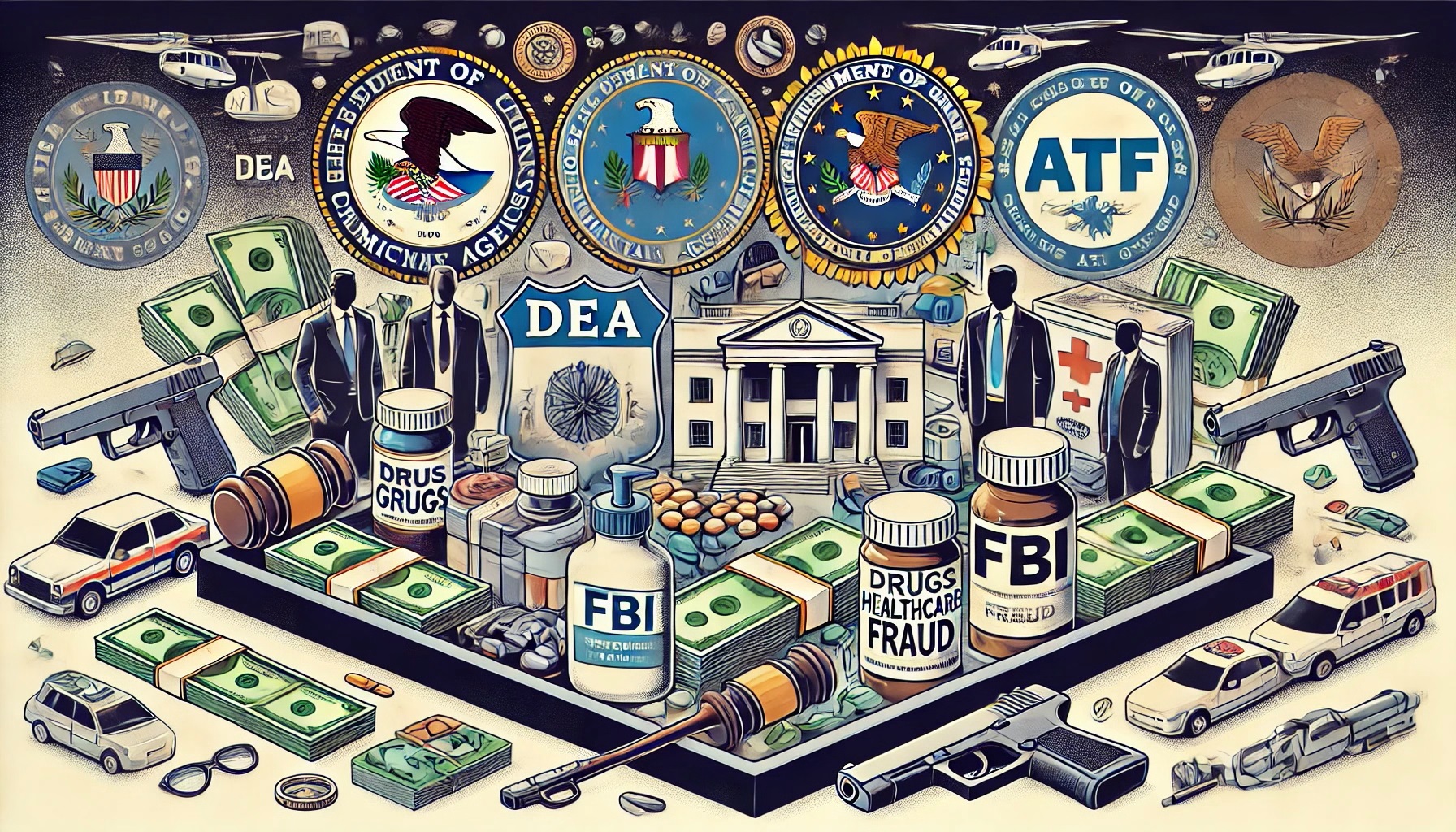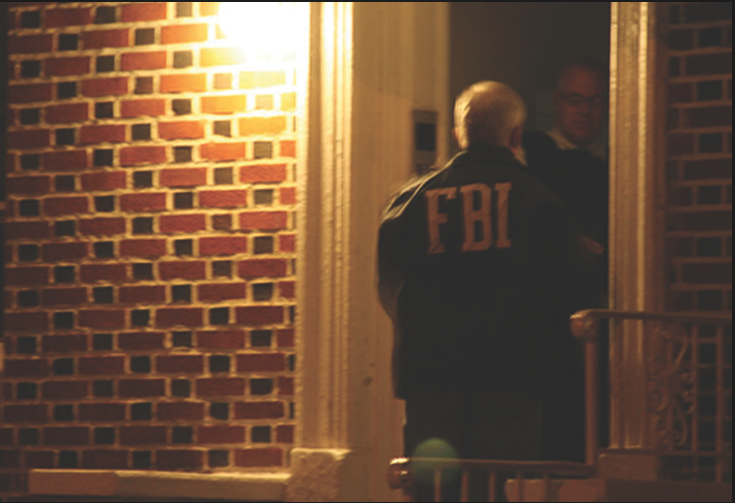What are my rights during a federal investigation?
If you are under investigation by a federal law enforcement agency, it is essential that you know your rights and have the support you need.

How to Avoid Federal Prosecution
Navigating the complexities of a federal investigation can be daunting. Understanding your rights and the legal process is crucial in protecting yourself and ensuring the best possible outcome during a federal investigation. Here, we break down the essential aspects of federal investigations, your rights, and practical steps to take if you find yourself under federal scrutiny. You might be able to avoid a federal prosecution or conviction with the early and proactive intervention by an experienced, respected federal defense attorney.
What is a Federal Investigation?
Federal crimes are actions deemed illegal by United States federal legislation, such as credit card fraud, identity theft, mail fraud, bank robbery, hate crimes, kidnapping, and tax evasion. These offenses often carry severe penalties, including lengthy prison sentences and substantial fines. Understanding the nature of these crimes and the jurisdictional boundaries can help you better prepare for the legal challenges ahead.
The Federal Bureau of Investigation (FBI), Drug Enforcement Administration (DEA), or Bureau of Alcohol, Tobacco, Firearms and Explosives (ATF) are agencies that typically conduct federal investigations. Federal investigations differ significantly from state investigations as federal agencies often have more extensive resources, including specialized units for cybercrime, counterterrorism, and forensic analysis. They also may have access to national databases and intelligence networks.

Your Rights During a Federal Investigation
When under federal investigation, it’s vital to know and exercise your constitutional rights:
- Protection Against Unreasonable Searches and Seizures: The Fourth Amendment protects you from unwarranted searches. Ensure that any search conducted by federal agents is legally sanctioned with a proper warrant.
- Right to Remain Silent: The Fifth Amendment protects you from self-incrimination. You are not required to answer questions or make statements to federal agents without your attorney present.
- Right to an Attorney: The Sixth Amendment guarantees your right to legal counsel. Having an experienced federal criminal defense attorney can significantly impact the outcome of your case.
Steps in a Federal Investigation
Federal investigations typically follow a structured process:
- Initial Inquiry: This is the preliminary stage where federal law enforcement agencies gather evidence to determine if a broader investigation is warranted.
- Investigation: A federal investigation can be extensive and take months, sometimes years, to complete.
- Subpoena and Grand Jury: The United States Attorney’s Office may convene a grand jury to review evidence and decide whether to indict.
- Indictment: An indictment is issued if the grand jury finds probable cause.
- Pretrial: This involves various motions and hearings to set the stage for trial.
- Trial: The attorneys present a case before a judge or jury for a verdict. Your defense attorney will fight for a not guilty verdict.
- Plea Bargaining: At any stage, the defense attorney and prosecutor can negotiate a plea bargain to avoid trial.
- Sentencing: The presiding judge will sentence the defendant if there is a conviction.
Precharge Representation – The Role of a Federal Criminal Defense Attorney
A seasoned federal criminal defense attorney is crucial at every stage of the case, including before charges are filed in court, also called “pre-charge representation.” Law enforcement agencies know well-informed, intelligent, and resourceful individuals retain an experienced lawyer the moment an investigation begins. A federal defense attorney is essential to protect your rights during a federal investigation. They will:
- Protect your statutory and constitutional rights.
- Negotiate with prosecutors.
- Minimize or eliminate time in the custody of law enforcement or the U.S. Marshal Service.
- Develop a robust defense strategy.
- Investigate possible defense evidence and preserve it for court and negotiations.
- Provide their client resources to mitigate a sentence or enhance plea negotiations.
- Guide you through complex legal procedures and potential plea bargains.
Client Testimonials (Names Have Been Changed)
Testimonial from John
I was facing a nightmare scenario, falsely accused of a serious white-collar crime. The weight of a federal investigation was crushing, and I feared for my future. That’s when I turned to LEWIS & DICKSTEIN, P.L.L.C.
From day one, their attorneys were relentless. They quickly understood the complexities of my case and identified the real culprit who had framed me to escape justice. Their expertise and swift action led the FBI to recommend charges against the true perpetrator, clearing my name.
Without LEWIS & DICKSTEIN’s intervention, I might have been wrongfully convicted and my life forever tarnished. I owe them an immense debt of gratitude for their dedication, skill, and unwavering commitment to protecting my rights. They are true legal champions.
John, grateful client of LEWIS & DICKSTEIN, P.L.L.C.
Testimonial from Ahmed, M.D.
I am a medical doctor, and my career means everything to me. When I was accused of sexually touching the woman sitting next to me on a Delta flight from New York to Detroit Metro Airport, my life turned upside down. I had consumed a couple of drinks during the flight and may have inadvertently annoyed the woman by touching her leg, but I would never have touched her inappropriately or sexually. The situation escalated when she passed a note to the stewardess, and I was taken off the plane by federal agents upon landing.
I knew I needed the best representation possible, and that’s when I hired Loren Dickstein from LEWIS & DICKSTEIN, P.L.L.C. From the very beginning, Loren showed an exceptional understanding of my situation and a dedication to clearing my name. He was able to negotiate on my behalf before any indictment, and thanks to his efforts, I was able to plead under advisement to a misdemeanor. This meant that I had no criminal record or penalties and only had to complete some community service.
One of the most significant impacts on my life was Delta’s decision to ban me from all future flights. Loren went above and beyond by getting me removed from the no-fly list, allowing me to travel freely again. His expertise, compassion, and relentless advocacy truly saved my career and my reputation.
I am incredibly grateful to Loren Dickstein and the team at LEWIS & DICKSTEIN, P.L.L.C. for their outstanding legal representation and unwavering support during this challenging time.
— Ahmed, M.D.
Practical Advice
If you suspect you are under federal investigation, here are some immediate steps to take:
- Do Not Speak to Federal Agents Without an Attorney: Politely decline to answer questions and request legal representation.
- Document All Interactions: Keep detailed records of any interactions with law enforcement.
- Seek Legal Counsel Immediately: An experienced attorney can provide invaluable guidance and representation.

Your Best Defense to a Federal Prosecution is LEWIS & DICKSTEIN, P.L.L.C.
Understanding your rights during the federal investigation process can significantly impact the outcome of your case. Having an experienced federal criminal defense attorney by your side is essential to navigate these complexities and protect your interests. If you have questions or need legal representation, contact our office to schedule a free consultation. We will find a way to help you!
Call us today at (248) 263-6800 for a free consultation or complete an online Request for Assistance Form. We will contact you promptly and find a way to help you.
We will find a way to help you.
We Are Not Afraid to Win!
Frequently Asked Questions
What do I do first if I’m arrested by the federal government and indicted?
Contact an experienced federal criminal defense attorney, such as the attorneys with LEWIS & DICKSTEIN, P.L.L.C., immediately. They will help you navigate the pretrial stage and decide whether to go to trial or consider a plea bargain.
What is a plea bargain?
A plea bargain is an agreement where you plead guilty to a lesser charge in exchange for a lighter sentence, avoiding the uncertainties of a trial.
Am I required to make a statement if I’ve been charged with a federal crime?
No, you are not required to make any statements. You are strongly advised to consult with your attorney before speaking to federal agents. Understanding your 5th Amendment rights during a federal investigation is crucial.
How long will my case take?
Federal cases typically move slower than state cases. The duration varies based on case complexity and court schedules. A federal prosecution can take months or years to complete.
What happens if I’m convicted at the end of the trial?
You have the right to appeal the conviction. An appeal reviews the legal proceedings for errors that could have affected the outcome. Usually, the sentencing hearing is scheduled in the United States District Court for the Eastern District of Michigan about three (3) months after the trial conviction or guilty plea.
Do I need a federal criminal defense attorney if I’m being prosecuted for a federal crime?
Federal cases require specialized knowledge of federal laws and procedures, making experienced federal attorneys crucial. Attorneys who primarily handle state cases have a significant disadvantage due to their lack of experience in federal court.
Can I switch attorneys in the middle of my case?
Yes, you can switch defense attorneys, but to maintain continuous representation, ensure new counsel is secured before terminating your current attorney.
Is it better to cooperate with the government?
Cooperation with the U.S. Attorney’s Office can be beneficial but also risky. Discuss this with your attorney to understand the implications and negotiate effectively.
Do I have to testify if my case goes to trial?
No, you are not required to testify at trial. Considering the strategy and potential risks involved, this decision should be made with your attorney.
What is a Rule 11 plea agreement?
A Rule 11 plea agreement, based on Rule 11 of the Federal Rules of Criminal Procedure, outlines the process for entering a plea. It ensures the plea is made voluntarily, knowingly, and intelligently. During the Rule 11 colloquy, the judge confirms the defendant understands the charges, the rights they are waiving, and the consequences of the plea.
















